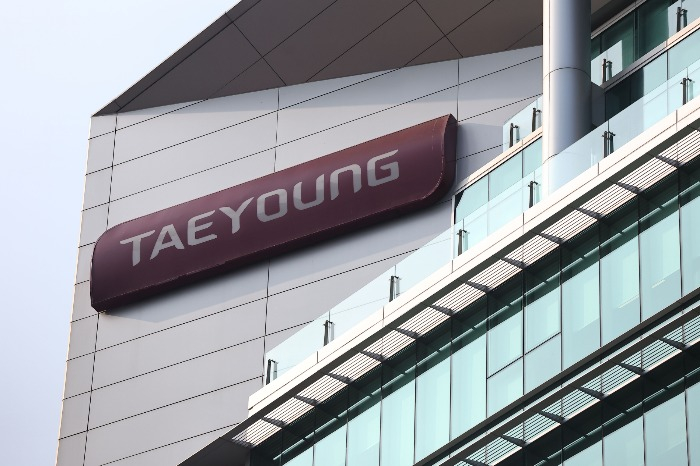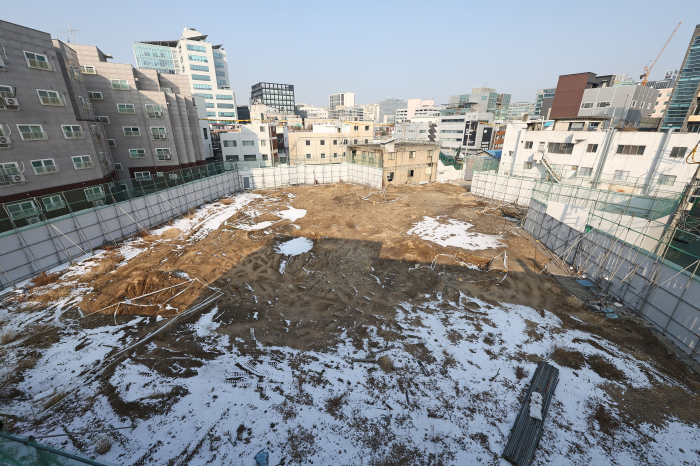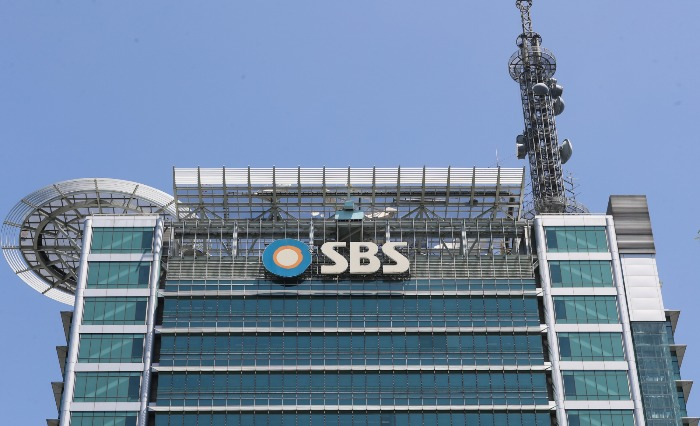Corporate restructuring
Taeyoung files for debt workout; offers to sell stake in KKR JV
Prolonged property market slump and soured project financing loans take heavy toll on Korean builders
By Dec 28, 2023 (Gmt+09:00)
3
Min read
Most Read
LG Chem to sell water filter business to Glenwood PE for $692 million


Kyobo Life poised to buy Japan’s SBI Group-owned savings bank


KT&G eyes overseas M&A after rejecting activist fund's offer


StockX in merger talks with Naver’s online reseller Kream


Mirae Asset to be named Korea Post’s core real estate fund operator



South Korea’s Taeyoung Group, saddled with 5.6 trillion won ($4.4 billion) in debt and loans it has guaranteed, filed for a debt workout program on Thursday, spotlighting the liquidity crunch in the construction sector struggling with high financing costs and stalled building projects.
The construction, logistics and media group submitted the debt restructuring application to its main creditor Korea Development Bank (KDB), after lenders refused to roll over debt of 48 billion won due on Thursday.
Taeyoung's workout program needs approval from at least 75% of its lenders to go through.
The application includes a plan to raise fresh capital by selling its entire stake in Ecorbit Co., a 50:50 joint venture with KKR & Co., according to sources familiar with the situation. But it hopes to keep SBS, the country’s leading broadcaster, under its wing.
As of the end of November, Taeyoung Engineering & Construction Co., the group’s core company, owes about 1.7 trillion won to lenders, including mutual savings banks, in addition to 3.9 trillion won of debt it has guaranteed for contractors.
Of the total, 395.6 billion won matures this month, followed by 436.1 billion won due in the first quarter of next year.

CAPITAL-RAISING DEALS WITH KKR
The deal is separate from the 400 billion won it raised from KKR early this year through the sale of bonds, collateralized by its stake in Ecorbit, the country’s largest waste and sewage management company.
Additionally, it has offloaded a stake in PTSilo Co., a farm product warehouse company based in Pyeongtaek, Gyeonggi Province, this year.

Ecorbit’s enterprise value is estimated at 2 trillion-3 trillion won, about 10 times its earnings before interest, tax, depreciation and amortization of 250 billion won in 2022.
Last year, it earned 120.9 billion won in operating profit with a profit margin of 18.8%. Its revenue crawled up 5.1% to 642.7 billion won from the year prior.
DOMINO EFFECT
Industry observers said Taeyoung’s debt workout will likely trigger a domino effect on other builders, which had severe refinancing problems this year.
Pension funds and other big institutional investors have turned a cold shoulder to bonds issued by domestic builders due to the prolonged property market slump and soured project financing loans.
Amid the funding drought, some builders with low credit ratings, including Dongbu Corp. and Kumho Engineering & Construction Co., resorted to the private debt market or short-term debt such as commercial papers at an interest rate of as high as 9% per annum.
Their funding conditions will likely deteriorate further next year. This month, GS Engineering & Construction Corp., Dongbu and Shinsegae Engineering & Construction Co. suffered downgrades to their credit ratings.
According to the Korea Investors Service, about 2.4 trillion won in corporate bonds issued by major Korean construction companies are coming due by the end of next year. Of the sum, bonds with a credit rating of A or below account for 2.2 trillion won.
South Korea’s project financing market has grown to 134.3 trillion won as of the end of September, according to the Financial Services Commission. That compares to 92.5 trillion won at the end of 2020.
(Updated with details about South Korea's project financing market and background)
Write to Hyun-Woo Kang, Han-Jong Choi, Jun-ho Cha and Hyun-Ju Jang at hkang@hankyung.com
Yeonhee Kim edited this article.
More to Read
-
 ConstructionKKR expected to buy 100% stake in Taeyoung Industry
ConstructionKKR expected to buy 100% stake in Taeyoung IndustryOct 25, 2023 (Gmt+09:00)
3 Min read -
 ConstructionTaeyoung to sell cash cow to shore up ailing construction arm
ConstructionTaeyoung to sell cash cow to shore up ailing construction armOct 18, 2023 (Gmt+09:00)
2 Min read -
 KKR buys $386 mn stake in Korean sewage disposal firm
KKR buys $386 mn stake in Korean sewage disposal firmOct 19, 2020 (Gmt+09:00)
1 Min read
Comment 0
LOG IN


